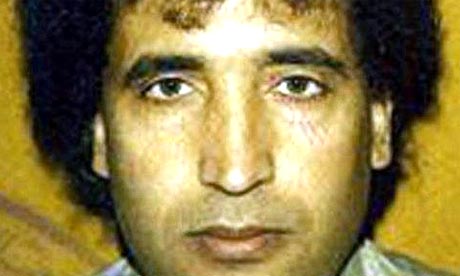
Does the name Abdelbaset Ali Mohamed al-Megrahi mean anything to you? If you live outside Scotland, probably not. Yet he was a central player – the central player? – in an event which shook us all to the core in the relative innocence of the pre-9/11 era.
But even to step off the overnight Edinburgh sleeper is to be reminded of the different rhythms of Scottish public life. They were always there, but devolution of power from Westminster to Holyrood has made them more so.
What is the biggest controversy to arise from the global banking crisis in Scotland?
Not inter-bank liquidity or bonuses paid to City low-fliers. It is whether or not the "UK government" – that remote entity, the "government in London" - is right to persist with the emergency merger between Lloyds TSB and HBOS now that it is buying into all stricken banks.
Alex Salmond's SNP administration, eminent Scots bankers and much of the media are campaigning to unpick the deal – in Scotland's perceived interests.
The fate of al-Megrahi is another event important to Scots but also to us all. The reputations of Scottish, and by extension British, justice are at stake (though they retain their different historic roots: Roman law and English common law).
Have you remembered him yet? He is the former Libyan Airlines steward and intelligence officer convicted in 2001 of being responsible for the smuggled bomb that destroyed Pan Am flight 103 over Lockerbie on the night of December 21 1988. 270 people died.
Why is he in the news again as well as being in Greenock prison on the lower Clyde? He has always denied his guilt, lost an appeal in March 2002, but has been given leave by the Scottish Criminal Cases Review Commission to appeal again. Judges cited four possible grounds for suspecting a miscarriage of justice in the case.
That appeal is due to be heard next spring. But doctors have now confirmed that al-Megrahi does not have until then. He has an advanced form of prostate cancer that has spread to other parts of his body. The medics say the 56-year-old Libyan may have only three months to live.
So the issue is: should al-Megrahi be released early from his 27-year sentence and sent home to his family to die? The decision is Scotland's, more precisely that of the justice minister, Kenny MacAskill. But since people from many countries died over (and in) the small Borders town in 1988 the ramifications stretch wider.
British victims' families, quoted in the Scotsman, which supports the campaign to let al-Megrahi go, tend towards compassion. One such is Jim Swire, whose daughter Flora perished in the bombing and who campaigned vocally for justice. Swire is clearly a man of quality who has expressed doubts about the safety of the conviction on neutral (Dutch) territory in 2000 – despite the 230 witnesses and £75m cost.
"It would be a tragedy if he is to spend the rest of his life in a Scottish prison, particularly if he is not guilty," Swire told the newspaper. "I don't feel vindictive towards him at all," says a mother who lost her son. American relatives quoted sound more vengeful, which may represent how Americans feel – and may not.
Tam Dalyell, the former Labour MP and all-purpose troublemaker, has always believed the prosecutors in the Crown Office were less than frank about the quality of their witnesses in front of the three Scottish judges who tried the case. British and US intelligence services were under huge pressure to get someone.
He is particularly alarmed about a man called Tony Gauci, the Maltese shopkeeper who identified the accused as buying key items. His probity was vouched for, but later a senior lawyer admitted he was "not quite the full shilling".
What about the rest of us? If the families, not all of whom regard the conviction as doubtful, are prepared to let him go, why should we think otherwise?
My only further thought from the period is that Colonel Gadafy's Libya in the 80s was a friendless whipping boy for US anger, impotence and frustration about the Arab world. It was the decade when Ronald Reagan had it bombed from UK bases for no convincing reason. (Margaret Thatcher agreed only because she felt she owed him one for help retaking the Falklands.)
Syria, far guiltier of anti-American actions, as I recall, was treated more leniently for reasons of state, though no longer. As Simon Tisdall writes in today's Guardian the Bush administration has a genius for doing things that big up Iran, including pushing Damascus into its embrace.
It is all far from Greenock prison, where al-Megrahi is apparently dying. Over to you, Mr MacAskill.







